North Korea’s Chungju Spy Ring in South Korea Exposed
2023-1-26, Tara O
North Korea has continuously conducted intelligence and subversive operations against the Republic of Korea since its inception and even prior. Through its Cultural Exchange Bureau, the communist party based in Pyongyang has recruited Spies from South Korea over the years, instructing them to create subversive underground organizations and implement North Korea-directed tasks. While the current investigations focus on the recently uncovered “HGH” and “The People’s Front for Independent Unification” organizations, this essay focuses on the Chungju Spy Ring exposed in 2021. It also highlights the situation of the previous administration of Moon Jae-in in blocking and slowing down the investigations of North Korea’s spy operations.
Chungju Spy Ring / Chungbuk Comrades Association for Independent Unification
‘In September 2021, a secret branch of the Korean Workers’ Party (North Korean Leader Kim Jong-un is the Chairman of the KWP) located in South Korea was exposed and 3 of its members were charged with violating the National Security Law. The underground organization is called Jaju Tongil Chungbuk Dongjihoi (자주통일 충북동지회) (Chungbuk Comrades Association for Independent Unification). (Chungbuk is a short form of the name of North Chungcheong Province.) It is also referred to as “Chungju Spy Ring” (청주간첩단), because it was based in Chungju (청주) City in North Chungcheong Province. The Chungju Spy Ring also took funds and orders from Ri Gwang-jin (리광진) of North Korea’s espionage organization, known as the Cultural Exchange Bureau. The underground party, Chungbuk Comrades Association for Independent Unification, was created to fulfill North Korea’s goal to overthrow the South Korean system on the orders of North Korea.
Cultural Exchange Bureau
The Cultural Exchange Bureau (문화교류국) is an espionage organization of the United Front Department (통일전선부) of the Workers’ Party of Korea (NoDongDang, 노동당) that conducts anti-ROK (Republic of Korea) intelligence and subversion operations. The Cultural Exchange Bureau recruits members of South Korean civic and labor organizations, political parties, religious clergy, and other sectors to form an underground party, an extension of the Korean Workers’ Party, in South Korea. These organizations collect state secrets and other information and conduct propaganda and subversive activities against South Korea’s national interests and its system for the North Korean regime. The Cultural Exchange Bureau began as two separate organizations—the Ministry of Culture (문화부) and the Ministry of Liaison (연락부) in the 1940s. They merged to form the Ministry of Cultural Liaison (문화연락부). Subsequently, it has changed names multiple times: the Ministry of Liaison (연락부), the Ministry of Social and Cultural Affairs (사회문화부), the Ministry of External Liaison (대외연락부), the 225th Bureau (225국), and now the Cultural Exchange Bureau.
North Korea’s Orders to Form an Underground Organization in South Korea
On May 21, 2017, a South Korean man in his mid-50s met with North Korea’s Cultural Exchange Bureau agent in Beijing, China, and received instructions to “form North Korea’s front underground organization in North Chungcheong Province” in South Korea.
The man returned to South Korea and held preliminary meetings with other members as the “Independent Unification Chungbuk Regional Party of the Workers’ Party of Korea.” This name was to change later.
The Creed
At the meetings, they discussed the organization’s creed and regulations. Their creed #1 describes their organization as a “secret organization of front [or vanguard] warriors to struggle in the forefront of the movement to reform South Korean society into a Korean People’s Democracy,” like the Democratic People’s Republic of Korea (DPRK). It also states, “Thoroughly reject all reactionary and opportunistic ideological tendencies, including pro-U.S. and pro-Japan tendencies.” Thus, it views the alliance with the U.S. as “reactionary,” when most Korean citizens value the ROK-U.S. alliance. It shows the Chungbuk Regional Party’s anti-U.S. and anti-Japan nature in its efforts to turn the ROK, a liberal democracy into a “people’s democracy,” which is another word for “socialist society,” in this case, run by the Kim Family Regime in North Korea.
Loyalty Pledges to Kim Jong-un
They also pledged their loyalty to Kim Jong-un by writing their pledges in blood:
Mr. A: “Our Brilliant Leader!! Long Live!” (영명한 우리 원수님!! 만수무강 하시라!)
Ms. B: “The Great Leader’s Supreme Leadership, Chungbuk [Association] to Risk Life to Guard, Risk Life to Accomplish” (위대한 원수님의 영도 충북 결사옹위 결사관철)
Ms. C: “With the (revered) Leader until the End of My Life” (생명이 다하는 순간까지 원수님과 함께)
Mr. Sohn: “Live as a Loyal Warrior of the (revered) Leader!” (원수님의 충직한 전사로 살자!)
Organizational Tasks
The Chungbuk Comrades Association for Independent Unification was assigned various tasks, such as “using the ruling party’s connections,” “recruiting former cadres of the KCTU,” “ideological indoctrination of local youth,” “ideological indoctrination of childcare teachers,” and “organizing nurses in the Chungbuk region.”
The adviser, Mr. A, was in charge of the ideological indoctrination of the underground party members, “waking up” (의식화) the workers of the labor union and irregular workers in North Chungcheong Province to the communist party ideology, and working with the former cadres of Korean Confederation of Trade Unions (KCTU), which has over 1 million members, to develop the local labor movement according to Kim Jong-un’s intent.
Mr. Sohn, who was the director of the Organization Bureau of KCTU, was the chairman of the Chungbuk Comrades Association for Independent Unification. He was in charge of taking control of the labor unions in major companies in South Korea as well as raising awareness of the youth in North Chungcheong Province toward their political ideology. Sohn also ran for National Assembly as an independent candidate in Daejeon in the general election on April 13, 2016. Sohn was the only 1 (of four) who did not get arrested, because the judge rejected his arrest warrant.
Ms. B, a former secretary-general of the Democratic Women’s Union (민주여성노조), one of the labor unions under KCTU, was the Vice Chair of the Chungbuk Comrades Association. Given her studies in Early Childhood Education, Ms. B was put in charge of raising the ideological awareness of daycare teachers in North Chungcheong Province and recruiting them. In November 2013, she was an executive committee member of candidate Ahn Cheol-su’s policy network “Tomorrow” and in the 2014 elections, she ran for a local city council. As such, she was also tasked with “using the connections with the members of the Democratic Party of Korea’s (Deobureo Minju Party) branch in North Chungcheong Province as well as the Provincial Assembly.”
Mr. A’s wife, Ms. C, a nurse, was the liaison with North Korea, and was in charge of organizing and recruiting nurses in North Chungcheong Province.
Per North Korea’s orders, these members of the underground spy ring reported their organizational details, including their positions and duties, to the Cultural Exchange Bureau in August 2017.
The organization’s name change—delete reference to the Workers’ Party of Korea
The Chungbuk Comrades
Association for Independent Unification is actually an underground party, a branch of the Korean Workers’ Party. Initially, the name of the organization was Chosun NodongDang Jaju Tongil Chunbguk JiyukDang (조선노동당 자주통일 충북지역당) (Chungbuk Regional Party of the Korean Workers’ Party for Independent Unification) in 2017 when it was formed. It was changed to Jaju Tongil Chungbuk Dongjihoi (자주통일 충북동지회) (Chungbuk Comrades Association for Independent Unification) after North Korea directed that “under no circumstances should the expression ‘Workers’ Party of Korea’ be used” to prevent association with North Korea. North Korea wanted to hide the fact that they conduct subversive activities in South Korea, and that they have branches of the Korean Workers’ Party in South Korea.
North Korea’s anti-ROK, anti-U.S. orders
From June 2017 until May 2021 (charged in September 2021), 84 encrypted file directives and reports were exchanged between the Chungbuk Spy Ring and North Korea. The documents reveal North Korea’s instructions, including opposing the introduction of F-35A to the ROK Air Force, creating a receptive atmosphere for Kim Jong-un’s reciprocal visit (after Moon Jae-in’s visit to North Korea), the DMZ Peace and Human Chain (평화인간띠) movement, struggle against conservative party, propaganda activities to recruit/gain support from the public for the Cho Kuk scandals, and the spread of anti-U.S. sentiment. The Cultural Exchange Bureau gave the above-themed orders repeatedly. Indeed, some of those orders were implemented, including anti-F-35 demonstrations. The anti-F-35 poster below shows that it is sponsored by various organizations, including the “Chungwon Residents Countermeasures Committee to Oppose F-35A Introduction,” “DMZ Peace Human Chain Movement’s North Chungcheng Province Headquarters,” and “Labor Counseling Center.”
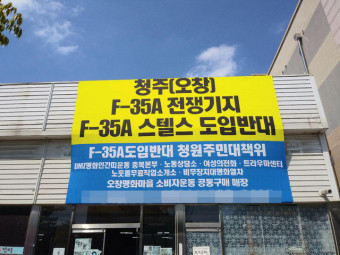
North Korea’s orders intensified in September 2018, after the 3rd South-North summit in Pyongyang and the signing of the lopsided South-North Military Agreement of 19 September 2018. North Korea repeatedly issued orders to the Chungbuk Comrades Association, including the following:
2019-3-12: (soon after the failed U.S.-North Korea summit in Hanoi on February 27-28, 2019) “Regarding Trump’s low-life scoundrels’ highway robber-like nature and shamelessness, organize activities to expand anti-U.S. and anti-Trump sentiment.”
2019-6-22: “At the next general election [in April 2020], drive the Liberty Korea Party (LKP) [which became the United Future Party, which became the People Power Party] to a crushing defeat and bury Hwang Kyo-ahn [LKP leader] politically by blaming him.”
2019-10-20: “The current situation (Cho Kuk’s resignation from Justice Minister) [the Cho Kuk scandal] is the conservatives’ deliberate scheme to return to power by challenging the prosecution reform with the aim of usurping political power.”
2019-12-15: “Develop the struggle against the introduction of F-35A stealth fighters to Chungju Air Base into one that subjects the military warmongers to social condemnation.”
2020-2-10: “Regarding the discussions on Park Geun-hye’s release from prison, organize activities that expand an atmosphere of anti-conservative struggle in the entire society.”
2020-2-25: “Minimize the effect of the newly created United Future Party [now People Power Party] and making it incoherent are requirements for the progressive, democratic, reform faction to retake power in the [April 2020] general election.”
2021-4-19: (Regarding the failure to retake the mayorship of Seoul and Busan in the By-election in 2021 by the Democratic Party of Korea and other parties on the left) “Implement a sly method of struggle to turn the entire public sentiment against the conservatives.”
In 2019, 5 months before the April 2020 elections, the members received $20,000 from a North Korean agent in Shenyang, China.
The North Korea’s orders show its intent on interfering in South Korean elections and politics, manipulating public opinion, and organizing anti-U.S. movements.
Security Measures
On May 27, 2021, the NIS searched Ms. B’s residence and seized 84 reports and directives, an unprecedented quantity, contained in USBs wrapped in four layers (aluminum foil, a zip lock bag, yellow envelop, white envelope), then hidden inside blankets. They used book codes, a form of covert communications, which has long been used by the Cultural Exchange Bureau since the 1950s, but instead of using short wave radio to broadcast the book codes, it used steganography. Office 225 (which is now known as the Cultural Exchange Bureau) and its spies in South Korea used steganography in the past for the Wangjaesan (왕재산) spy case discovered in 2011 and the Ilsimhoe (일심회) spy case uncovered in 2006 as well.
The spy ring members abided strictly by the security procedures of the Cultural Exchange Bureau, which include buying used computers and equipment to avoid real name registration or traces of purchase, replacing computers every 3 years, replacing wireless modems, SIM cards, and contact emails every 6 months, securing encryption programs, using slang to note important details, and completely deleting the slang notes. They refer to North Korea as “the company,” and Kim Jong-un as “the chairman of the company”
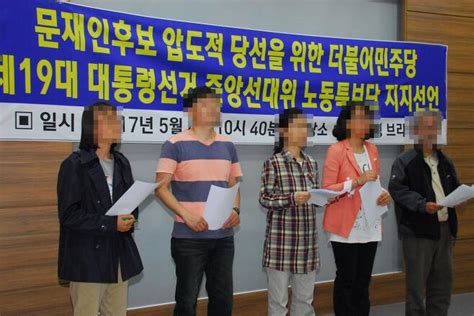
The members of the Chungbuk Comrades Association also served as special advisors to candidate Moon Jae-in during the 2017 presidential election. In May 2017, they invited labor union officials, former and current, and journalists and held a press conference supporting Moon Jae-in for president.
Three members of the Chungbuk Comrades Association were arrested in August 2021, but all three were released within 10 months.
Investigation Squashed
Key officials in the Moon administration blocked the investigation and prosecution of the incident. When counterintelligence officials reported that the investigation should be expanded with search and seizures, high-ranking officials simply went on leave to avoid approving the investigation. If the approving officials did not approve the investigation, despite being aware of the evidence of clear violations of the National Security Law, it would fall under the charge of dereliction of duty (직무유기), and if the approving official directly instructs them not to conduct an investigation, the approving official would be accused of abuse of authority (직권남용). (21:12) Taking a leave of absence provided an excuse to not deal with the issue.
Within 6 months starting April 2018, there were two summits between Moon Jae-in and Kim Jong-un. In addition, the U.S.-North Korea summit occurred on June 12, 2018 in Singapore, the day before the nation-wide local elections in South Korea on June 13, 2018. Suh Hoon (서훈) and Chung Ui-yong (정의용) repeatedly shuttled back and forth between Seoul and Washington, DC to promote the summit, emphasizing that North Korea had the will to denuclearize the “Korean Peninsula,” a misleading statement, since it means exactly the opposite, e.g., not denuclearizing North Korea. The key word was “Korean Peninsula,” which includes the U.S. nuclear umbrella for South Korea, and from North Korea’s perspective, denuclearization of the “Korean Peninsula” means no U.S. extended deterrence for South Korea.
While the investigation was on hold, the Chungbuk Comrades Association members communicated with North Korea 35 times, and traveled back and forth between Phnom Penh, Cambodia, Angkor Wat, Cambodia, and Hanoi, Vietnam, to contact or receive orders from North Korean agents. They also organized anti-government and anti-U.S. demonstrations. In 2019, the spy ring received $20,000 from North Korean agents in Shenyang, China. The counterintelligence officials at NIS had to continue to wait, while also continuing to gather evidence.
Suh Hoon
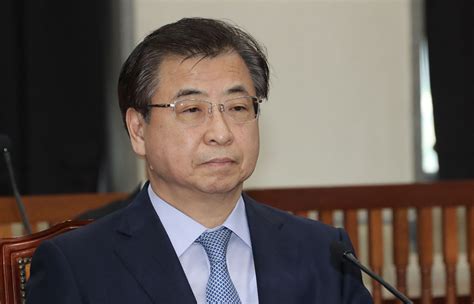
Suh HoonSuh Hoon (서훈), then director of the National Intelligence Service (NIS) appointed by Moon Jae-in (NIS Director from June 1, 2017 – July 2, 2020) did not approve further investigations, although the NIS obtained evidence related to the allegations in early 2018. As the NIS’s counterintelligence officials reported that the investigation should be broadened as evidence of alleged espionage was accumulating, their superiors did not approve it, instead telling them to gather more evidence and to watch for the South-North situation. The Moon-appointed NIS director Suh said that South-North relations are improving, but if the espionage case breaks out, it will have an adverse effect, so put it on hold. In effect, Suh Hoon abused his authority to stop the investigations and further legal actions against subversive groups in South Korea that were taking orders from North Korea.
3 defectors sent to North Korea / Fire Control Radar targeted at Japan’s patrol aircraft (December 2018)
In December 2018, the Moon administration sent back 3 defectors against their will to North Korea. How they were “captured” is shocking. They were found by Japan in the Sea of Japan / East Sea near the joint fishing area between Japan and South Korea. It was at this time when the South Korean Naval Warship Gwangweto the Great appeared suddenly along with a South Korean Coast Guard ship Sambongho 5001 and intercepted the defector boat and forced it into South Korean waters. The small boat had 4 defectors, with one who died from a gunshot wound received as he escaped North Korea.
The wooden boat part of the story was overshadowed by another major incident at the same time. The Japanese Maritime Self Defense Force’s P-1 pilots, who were flying over the same area to observe the situation regarding the wooden boat, were threatened by the ROK Navy warship targeting its fire control radar at their aircraft. Such an act is so hostile that, it can be interpreted as an act of war. Certainly, this incident was serious and the news headlines focused on this issue. The only mention regarding the small boat was Moon Jae-in administration’s claim that Gwangweto was searching for the North Korean fishing boat as part of “rescue operations,” but the story about the wooden boat and those onboard quickly disappeared. The Moon administration risked this dangerous international incident to capture the defectors on a small boat, but why? Apparently, Kim Yo-jong, Kim Jongun’s sister, called the Blue House through the North-South hotline, and Chung Ui-yong (National Security Advisor), Suh Hoon (then NIS Director), and others made the decision to send the ROK Naval ship to the area to capture the defector boat, and subsequently send the defectors back to North Korea. (54:47) They were returned to North Korea in 3 days, indicating there was no investigations.
Sent 2 defectors to North Korea (November 2019)
Suh Hoon also stopped other investigations. After the NIS, Suh Hoon moved to the Blue House to become the Director of the National Security Office from July 3, 2020 – May 9, 2022. After the Moon administration ended, the NIS filed charges against Suh Hoon for prematurely stopping an investigation into the case of the two fishermen who defected from North Korea, but were forcibly sent back to North Korea by the Moon administration on November 7, 2019. The decision to send them back occurred only 2 days after the 2 fishermen defectors arrived, which was on November 4, 2019. On November 5, 2019, Moon Jae-in sent a personal letter to Kim Jong-un, inviting him to the ROK-ASEAN Special Summit to be held in Busan on November 27, 2019, along with a request to hand over the 2 fishermen defectors and their fishing boat to North Korea, and the next day, North Korea approved sending the defectors and the boat back. The defector community in South Korea believe that the two defectors were sent back as a “concession” or “gift” to Kim Jong-un to entice him to visit South Korea.
No effort to rescue ROK citizen Lee Dae-jun at sea, framed him (September 2020)
Suh Hoon was also investigated in December 2022 for framing Lee Dae-jun, the Ministry of Maritime and Fisheries official shot dead and burnt by North Korea on September 22, 2020 during the Moon administration, as a traitor who defected to North Korea. Although South Korean citizens were horrified that the government took no action to protect a South Korean citizen, Moon’s priority was making the “end of war declaration” speech, which mimicked North Korea’s position, at the UN through video conference in the early hours of September 23, 2020. During September 23-24, 2020, intelligence and reports were deleted from the NIS and the Ministry of National Defense, and Suh Hoon was charged for ordering the deletion.
Soon after stating he has no intention of evading the investigations by the prosecutors, Suh Hoon quickly left Korea for the U.S. in June 2022 on a tourist visa, which allowed him to remain in the U.S. for up to 6 months. Suh Hoon eventually returned to Korea and was arrested on December 3, 2022. Moon Jae-in posted comments of support for Suh Hoon on social media. Moon referred to Suh Hoon as the “best North Korea expert and negotiator, who had participated in all the negotiations with North Korea by the Kim Dae-jung, Roh Moo-hyun, and Moon Jae-in governments” and lamented that “such an asset is destroyed.” Suh Hoon played a key role in stopping and slowing investigations, which helped North Korea.
Park Sun-won
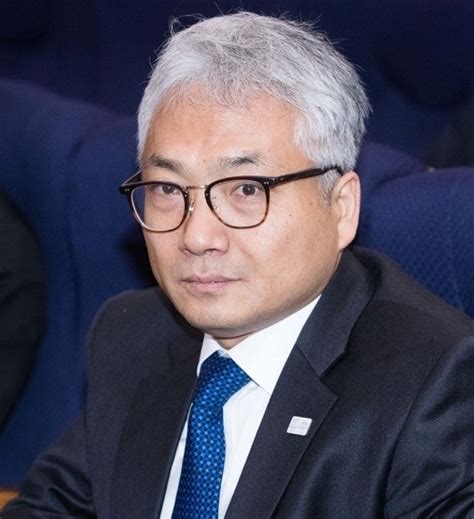
It appears Park Sun-won (박선원), then #2 man at the NIS, and also considered the real power at the NIS during the Moon administration, was a key obstacle to the investigation of North Korean espionage during the administration. (22:12) During his student days, Park Sun-won was a key cadre of the underground Jusapa (KimIlSungism/KimJongIlism) organization, SamMinTooWi (삼민투위), which was anti-U.S. (21:50) SamMinToo is an abbreviation for the 3 “Min” Struggle: Minjok Tongil, Minju Jangchui, Minjoong Haebang (Minjok Unification, Democracy Attainment, Liberation of the Masses).
(Note: Minjok means people of the same tribe or ethnicity, and often is translated as “nation” or “national,” but for most Koreans, it indicates the “Korean people.” When the Korean Workers’ Party or its sympathizers use the term “minjok,” it means “Kim Il-sung minjok,” which is not all Korean people, but those who accept KimIlSungism. It is confusing on purpose as part of Terminology Confusion Tactics. Translating Minjok Tongil as “National Unification” loses that meaning, thus it is translated here as “Minjok Unification”—unified Korea controlled by those who adhere to KimIlSungism, thus a unified totalitarian Korea, not one that is based on liberal democracy and market economy.)
Park Sun-won was the chairman of SamMinTooWi (3 Min Struggle Committee), which occupied the U.S. Embassy’s Cultural Center by force in the 1980s, demanding that the U.S. apologize for the events in May 1980 during the Gwangju Uprising, a baseless accusation. He also defended North Korea by denying North Korea sank the ROK Navy ship Cheonan, instead blaming the ROK government. During the administrations of Rho Moo-hyun and Moon Jae-in, Park Sun-won played a key role in planning and implementing pro-North Korea policies. (22:39) He often clashed with those who were pro-ROK-U.S. alliance during the Rho Moo-hyun administration. During the Moon administration, Park Sun-won, was the director of NIS’ Planning and Coordination Office (기획조정실장), which controls the budget, until March 26, 2021, when Moon Jae-in appointed him to be the First Deputy Director (제1차장), the #2 position at the NIS.
Park Ji-won
The “Chungbuk Comrades Association for Independent Unification” espionage case was finally approved for investigation under Park Ji-won (박지원), Suh Hoon’s successor, but even that required brave lower-ranking officials at the NIS, who risked their careers, to convince Park Ji-won. According to Huh Hyun-jun (허현준), former Blue House official in the Park Geun-hye administration, the officials in charge of the North Korea spy case directly went to Pak Ji-won, gave him the investigation data, and asked him to approve investigating the case as soon as possible in a quite intense manner. (23:50) They said if the case is not investigated, it will become quite burdensome for the Moon administration later, and that Park could face criminal prosecution for dereliction of duty or abuse of authority. Thus, reluctant Park Ji-won was impelled to allow the investigation and the spy case became known to the public.
Lacking the will to investigate spy cases under Moon Jae-in
According to Dr. Yoo Dong-ryul, the director of the Korea Institute for Liberal Democracy, from early 2011- 2017 (prior to Moon Jae-in administration), there were 26 spy cases investigated (about 4 per year). During 2018-2020 (under Moon Jae-in), only 3 people (the Chungbuk Comrade Association) were investigated, as described above. As for military and defense-related spy cases, during 2011-2016, then-Defense Security Command (DSC) arrested 48 violators of the National Security Law, and sent them for military or civilian prosecution, as appropriate. Under Moon Jae-in, the DSC was abolished, and the renamed Defense Security Support Command (DSSC), with its key function of counterintelligence taken away. DSSC made no spy arrests. With the current Yoon Suk-yeol administration, DSSC has become Defense Counterintelligence Command (DCC) (국군방첩사령부).
Moon Jae-in, who called for abolishing the National Intelligence Service (NIS), significantly reduced the NIS’ counterintelligence capability related to North Korea in the name of reform. He crushed the morale of the NIS by, among others, paying tribute to a communist spy—Shin Young-bok (신영복)—by erecting a large rock engraved with Shin’s calligraphy at the entrance of the National Intelligence Service (NIS) in June 2021. It was removed soon after Moon’s presidency ended. Moon publicly stated that Shin Young-bok was the ideologist whom Moon admired the most, and displayed Shin’s calligraphy at the PyongChang Winter Olympics Reception on February 10, 2018.
Shin Young-bok was crucial to the formation of the subversive operations of the Unification Revolutionary Party (URP, 통일혁명당), an underground organization created by the order of the Korean Workers’ Party (Controlled by North Korea). The URP maintained that South Korea is a colony of the U.S. and that the Korean people by themselves should expel their colonial master, the U.S., and overthrow the South Korean government through armed revolution in order to establish socialism. Uncovered in 1968 by the South Korean government, the Unification Revolutionary Party case was the most significant espionage case in the 1960s.
Under former president Moon Jae-In, his political party forced through a law that takes away NIS’s authority to investigate North Korean spy cases, and transfers that authority to the police, which lacks the capacity and capability that NIS has. The transfer is to take effect on January 1, 2024.
The Prosecutor General in the Moon administration
The Moon administration continued to interfere in the investigations once the Chungju Spy case was sent to the prosecutors. The Chungju District prosecutors arrested 3 of the 4 Chungju Spy Ring members (the judge rejected the arrest warrant for the fourth one), and was taking affidavits from dozens of labor and civil society activists in North Chungcheong Province. They requested additional prosecutors from the Supreme Prosecutor’s Office [headed by Kim O-soo (김오수)] in August 2021, but the Supreme Prosecutor’s Office rejected the Chungju prosecutor’s request.
What about the Court? Suspects Released
All three suspects were released. On March 15, 2022, one member of the Chungju Spy Ring was released from the Chungju Women’s Prison due to the expiration of her detention period. The other two were released on bail, despite the prosecutors’ opposition, as the judges granted the spy suspects’ bail requests on May 10, 2022. As mentioned earlier, the 4th suspect’s arrest warrant was rejected from onset by a judge.
The court hearing was on April 26, 2022, but the trial has come to a standstill. In May 2022, the spy suspects changed their lawyers to the Minbyun lawyers, (“Lawyers for Democracy”) who have been delaying the trial by various methods. Minbyun lawyers are infamous for supporting the interests of North Korea in legal battles, for example in demanding the ROK government return 12 defectors, who worked at a North Korean restaurant in Ningpo, China. The Minbyun lawyers also tried to cajole the defectors into going back to North Korea on numerous occasions. In a similar fashion, Minbyun lawyers have defended North Korean spy suspects and pro-North Korea activists for decades.
After their release, the suspects continued to communicate with spy suspects in other ongoing investigations which will be discussed in an upcoming article. At least one member of the Chungbuk Comrades Association communicated with KCTU cadre, who are currently under investigation for meeting North Korean agents in 3rd countries and establishing separate underground organizations at the direction of the Cultural Exchange Bureau.
These suspects are the Director of the Organization Department at the KCTU and the vice chairman of the Korean Metal Workers’ Union (전국금속노동조합) of the KCTU. They are two of four KCTU current and former cadres, who came under investigation in January 2023.
It appears that North Korea has had a relatively permissive environment in South Korea for creating secret extensions of the Workers’ Party of Korea to conduct subversive operations against South Korea. As the investigations continue, more will be revealed about how extensive these networks of underground organizations are and what other activities they have performed under the direction of North Korea.
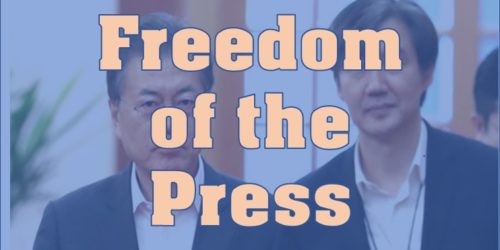
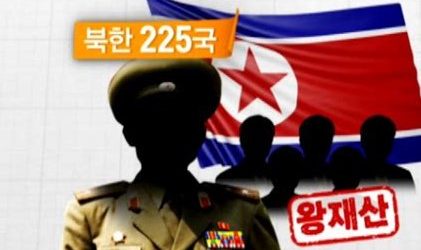
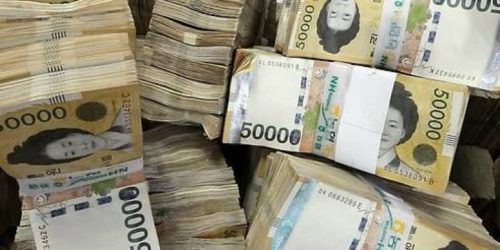
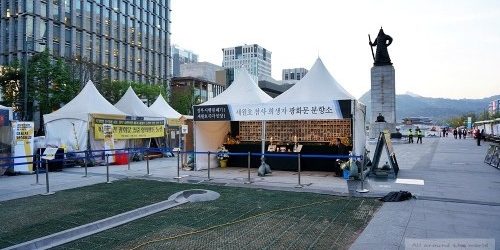
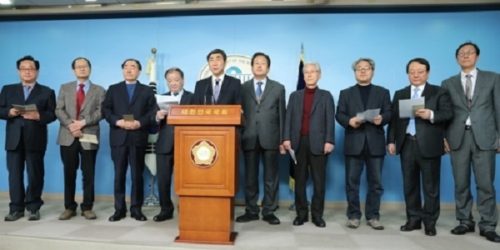
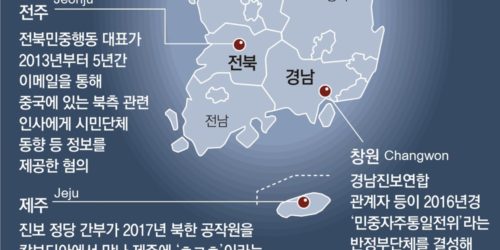
This essay reminds me of a book I read a few years ago. It was written by Jang Jin-Sung, and was titled “Dear Leader.” He was a poet working in “Section 5 (Literature), Division 19 (Poetry) of Office 101.”(Page 6, quoted). This was part of the United Front Department, and the institutional slogan was “Localization,” meaning South Korea. Of all the books written by 탈븍 (escapees from North Korea), this was most terrifiying. And it seems things have NOT changed!